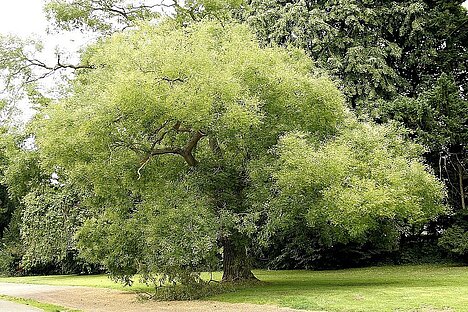Japanese string tree

Dogs are curious creatures that often tend to explore their surroundings through smell and taste. This trait means that pet owners must constantly be on guard for potentially dangerous plants that could harm their furry friends. The Japanese string tree, an ornamental tree common in many parts of the world, is popular due to its attractive appearance and adaptability to different environments. However, the question of its safety for dogs remains an important consideration for responsible pet owners.
Ingredients of the Japanese cord tree
The Japanese cord tree contains several chemical compounds that determine its biological activities. The main constituents include quercetin and other flavonoids, which have antioxidant properties. While these substances are known for their health benefits in the human diet, their effects on dogs may vary.
Flavonoids and their effect on dogs
Flavonoids, such as those found in the Japanese string tree, are known for their anti-inflammatory and antioxidant properties. In dogs, these substances can have potentially beneficial effects in moderate amounts, such as supporting heart health and reducing inflammation. However, caution is advised as excessive intake can lead to health problems.
Toxicity of Japanese cordgrass for dogs
Although Japanese cordgrass contains beneficial compounds, it is important to understand whether it is toxic to dogs. The toxicity of a plant can vary greatly depending on the amount ingested and the specific health condition of the dog. At this time, there is limited scientific evidence to suggest pronounced toxicity of Japanese cordgrass to dogs. Nevertheless, pet owners should be cautious and prevent their dogs from consuming parts of this plant.
Symptoms of possible toxicity
If a dog has consumed parts of the Japanese cordgrass, the following symptoms could indicate toxicity:
- Vomiting
- diarrhea
- lethargy
- Loss of appetite
If these symptoms occur, a veterinarian should be consulted immediately to ensure appropriate treatment.
Precautions and protective measures
To ensure your dog's safety, it is advisable to limit access to plants whose toxicity is unknown or that are considered potentially toxic. Supervise your dog during walks and in gardens to ensure that he does not consume dangerous plants.
While the Japanese cord tree may offer some health benefits due to its constituents, the limited information on its toxicity to dogs is a reason for caution. Pet owners should take preventative measures to protect their dogs from consuming unknown parts of the plant. Immediate veterinary attention is required if plant poisoning is suspected. By acting responsibly, you can ensure the health and well-being of your dog.
If you notice any signs of hypersensitivity or poisoning in your dog, you should see your vet immediately. We are not a substitute for a vet, but we try to be as accurate as possible. Every dog reacts differently and we recommend you get a second opinion or consult your vet if in doubt.
Stay healthy and take good care of your four-legged friend!😊